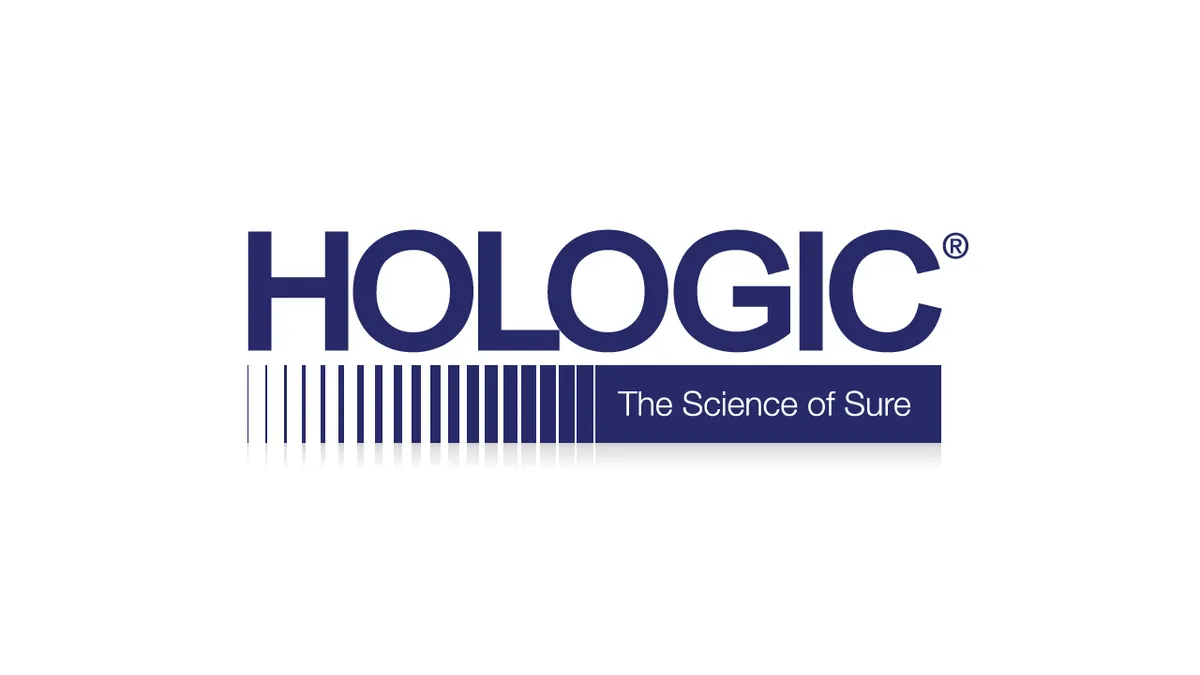Dive Brief:
-
Hologic has validated the use of its Aptima and Panther Fusion SARS-CoV-2 assays with pooled patient samples aimed at speeding lab processing of COVID-19 molecular tests amid growing demand.
-
By using this approach, Hologic announced Tuesday that laboratories will be able to combine up to five specimens into one tube for processing simultaneously, thereby increasing their testing capacity and conserving test materials such as reagents, swabs, viral transport media, and other items in short supply.
- Hologic claims to be the first test manufacturer in the U.S. to validate and introduce such a technique. Clinical laboratories LabCorp and Quest Diagnostics last month announced their own specimen pooling methods. Unlike Hologic, however, they have already been granted emergency use authorizations by FDA.
Dive Insight:
Pooled testing of samples has taken on greater urgency as demand for COVID-19 tests in the U.S. has grown, straining the ability of commercial laboratories such as LabCorp and Quest to keep up and causing delays in turnaround times for test results. By combining specimens, labs are able to process multiple samples at once. However, the technique is only efficient in testing patients in regions or populations with low rates of disease.
In Hologic’s approach, all the specimens are retested individually when the pooled sample generates a positive result. Kevin Thornal, president of the Diagnostic Solutions division at Hologic, contended in a statement the approach will enable more samples to be tested each day and truncate turnaround times.
The work, which was supported by an $8.9 million government contract, could enable users of the 1,100 Hologic systems installed in the U.S. to process more tests. Hologic said the systems can handle more than 1,000 SARS-CoV-2 samples a day, adding that it is currently making more than 1.5 million tests a week. The company’s molecular diagnostics sales jumped 169% in its fiscal third quarter.
Hologic has completed an emergency use notification to make the pooling approach available to laboratories but is yet to have the approach reviewed by FDA. Even so, Hologic called the workflow “validated” and is making it available under an FDA COVID-19 policy that supports use of diagnostics before they receive emergency use authorization.
While Hologic contends it is the first test manufacturer to roll out a pooling protocol, it is not the only test developer interested in the idea. Last month, researchers at Augusta University and PerkinElmer Genomics published a paper describing their approach to pooled sampling. A laboratory at Augusta has been using the approach since March.
The approaches described by Hologic and PerkinElmer both require the retesting of pooled samples to determine which specimen is infected with the coronavirus. Other companies have taken a different approach to pooled sampling.
LabCorp, for example, adopted a matrix-based method that enables it to identify a positive specimen in pooled samples without retesting. The company went with the matrix-based approach after concluding two-stage testing “is not practical to implement in a high throughput testing environment where many thousands of samples would need to be pulled and retested every day.” LabCorp said its approach could raise “lab efficiency by a factor of 2” if fewer than 6% of tested samples are positive.









